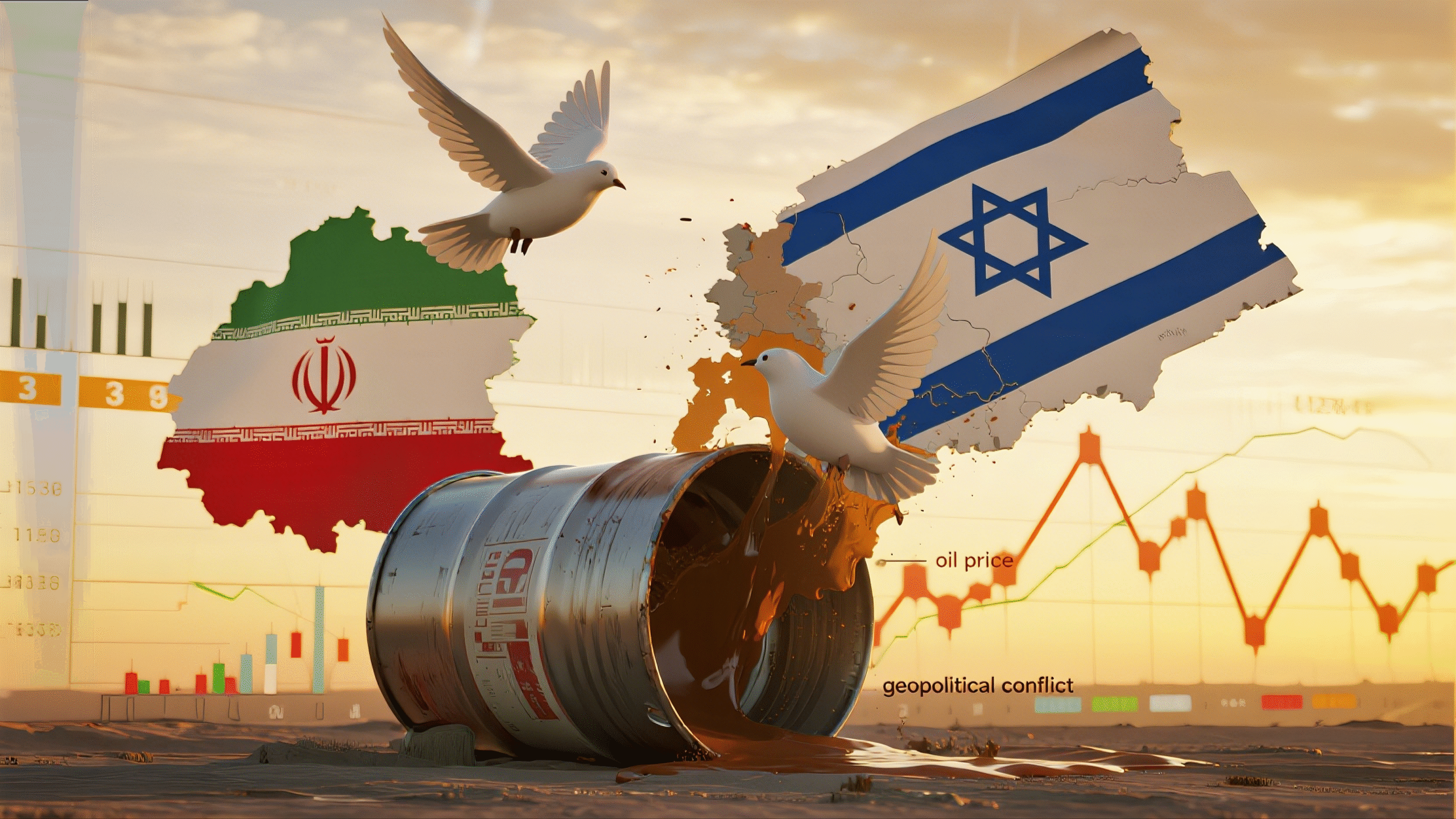
The global oil market witnessed a significant downturn as news of a ceasefire agreement between Iran and Israel emerged, bringing a temporary halt to escalating tensions in the Middle East. Brent crude and West Texas Intermediate (WTI) prices fell sharply, underlining how sensitive energy markets remain to geopolitical shifts in key oil-producing regions.
But what does this ceasefire mean for oil traders, investors, and the global energy supply chain? Let’s dive deep into the causes, consequences, and what comes next.
On June 21, 2025, reports of a ceasefire between Iran and Israel were confirmed by regional sources and international agencies. Almost immediately, oil prices reacted to the perceived de-escalation of one of the most critical flashpoints in the energy world.
Brent crude futures fell nearly 3%, briefly touching below $81 per barrel.
WTI futures dropped to around $76 per barrel, reversing the previous week’s upward trend.
Market sentiment shifted dramatically as traders priced in reduced risk to oil supply disruptions in the Strait of Hormuz—a critical chokepoint through which nearly 20% of the world’s oil flows.
The Middle East continues to be a geopolitical hotbed that directly impacts global energy flows. Iran, as a major OPEC member, and Israel, as a Western ally with strategic regional ties, represent opposing forces whose conflicts often cause supply fears, driving prices upward.
The recent truce removed the immediate threat of military escalation, missile attacks on energy infrastructure, and potential blockades in the Persian Gulf—all bullish signals that evaporated with the ceasefire.
The oil price drop is not just about geopolitics—it also reflects technical market behavior.
Many traders and hedge funds had built long positions betting on continued tension.
The ceasefire prompted profit-taking, especially after prices had surged earlier in the month due to war risk premiums.
Algorithmic trading systems likely triggered sell-offs as stop-loss levels were breached.
Despite the ceasefire, oil prices remain vulnerable to other factors:
EIA and IEA data shows fluctuating U.S. inventories, reflecting complex supply-demand dynamics.
Global demand projections remain mixed amid Chinese economic slowdown and steady U.S. consumption.
OPEC+ production policy, especially from Saudi Arabia and Russia, remains another key variable.
While the ceasefire provides immediate price relief, analysts caution that:
It may not signal long-term peace; Middle East tensions are historically cyclical.
Any breakdown in talks could reignite conflict and reverse the price decline rapidly.
Investors should prepare for continued volatility and avoid complacency.
Even with a truce, the geopolitical risk premium is not fully erased:
Proxy conflicts involving Iran-backed groups remain active across the region.
U.S. involvement or shifts in sanctions policy can quickly change the landscape.
Maritime security in the Strait of Hormuz remains fragile.
Countries heavily reliant on Middle Eastern oil are re-evaluating their strategies:
India, Japan, and South Korea are increasing strategic petroleum reserves (SPR).
European nations are investing more in LNG terminals and alternative sources like Norway.
The U.S. continues to leverage shale production to reduce foreign oil dependency.
While fossil fuel prices dominate headlines, the ceasefire has little impact on the long-term clean energy transition:
EV markets, renewables, and hydrogen strategies continue to gain ground.
However, oil will remain critical to the global economy for the foreseeable future.